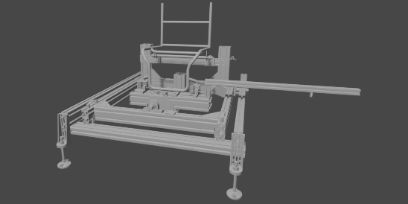- Research Project
Rig for testing the rigidity of wheelchair chassis
The project aims to design a testing rig to measure rigidity of wheelchair chassis.
Factsheet
- Institute(s) Institute for Human Centered Engineering (HUCE)
- Duration (planned) 01.09.2021 - 31.07.2022
- Head of project Name
- Keywords Wheelchair, static testing, rigidity, disability
Background
Wheelchair chassis are subjected to bending and tensional strain during various everyday shocks (dismounting pavement, obstacles in front of the front wheel, uneven surfaces, etc.). The rigidity of the chair’s chassis influences its bending capacity. Rigidity is linked to various key parameters, such as the ease of vehicle propulsion and its comfort. Developing a testing rig to measure rigidity is an important step. This would enable a correlation to be established between the value of rigidity and comfort and ease of propulsion, for example. This information could be shared with manufacturers to improve their technical data and with users to help them choose the right product.
Procedure
This rig, designed to test the two measurement parameters (tensional strain and bending), now has to be fitted with sensors enabling the precise measurement of the chair’s frame movement when subjected to torque. The rig can then be validated by comparing the actual measurements on the wheelchairs equipped with a strain gauge, computer analyses by FEM and the measurements obtained on the rig.


